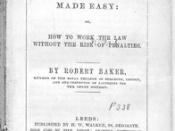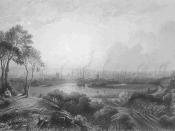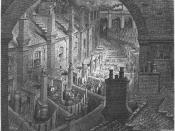Jane Eyre
Report on the 19th Century
Throughout Jane Eyre, Brontë shows that two creeds exist: one for the lucky and another for everyone else. What becomes apparent towards the end of the novel is that Jane herself is for the social caste system. A Westminster Review article speaks with an extraordinarily similar voice. "It would neither harmonize with our tastes or opinions to make any long profession of our attachment to the working classes." Unsurprisingly, the paradigm established at the outset of the article suggests a paternalistic, bourgeois sensibility rather than a genuinely democratic spirit. The authors continue by reassuring their readership that revolution is not their intention, "The distinctions of society we acknowledge and respect. The rich man must have his mansion, the poor man, his cottage." This is evident in the book Jane Eyre.
The class attitudes in Jane Eyre are the same as they were in the 19th century.
The caste system was an appropriate system for the time period. Britain was still recovering from its losses in America. The economy was slowly rising and starting to pick up rate of growth. There was a mighty evil connected with the condition of the working classes in England which had to be met, exposed, and overcome. That evil was as such: "The upper and even the middle classes have been so long habituated to the knowledge of the existence of misery, want and privation, that they ask, with indolent or vapid indifference, when pressed upon to consider the whole question, "What is there new then, that we have not heard of?"
Another large part of the 19th century was the concept of racial roles and attitudes towards other races. This is illustrated throughout the book Jane Eyre. The wife of Mr. Rochester, Bertha Mason, has an ambiguous...


